The night the horror struck
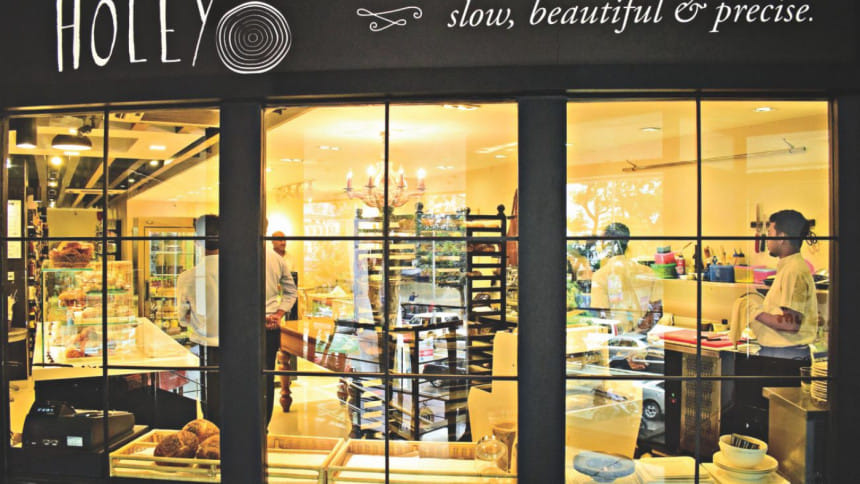
It was a quiet afternoon at the Holey Artisan Bakery on road 79 in the capital's Gulshan on July 1, one of the last days of Ramadan in 2016.
As the sun went down, the Western-style café in the posh neighbourhood got busier. Diners started arriving at the upscale restaurant with a lawn.
By 8:00pm, the place was abuzz with both expatriates and Bangladeshis.
At one of the tables on the ground floor, Italian national Nadia Benedetti was having farewell dinner with several Italian businesspeople.
A few yards away, Faraaz Ayaaz Hossain was having a conversation with his friends Abinta Kabir and Tarishi Jain.
At another table, Hasnat Karim, former teacher of a private university, was with his family members to celebrate his daughter's birthday.
At the lawn, Fairuz Maliha and Tahana Tasmia were waiting to have ice-cream with their friend Tahmid Hasib Khan, who arrived in Dhaka from Canada in the morning.
Around 8:40pm, the diners heard a loud sound like that of a firecracker. They had no idea that their night out would turn into a nightmare.
Shouting "Allahu Akbar", five gunmen burst into the eatery and started firing indiscriminately. They turned off all the lights, held the diners hostage and sorted out targets through a test of reciting verses from the Holy Quran.
They then brutally killed the hostages with guns and machetes, and used the victims' phones to publish images of the bodies on the social media.
Law enforcers could not initially fathom the gravity of the situation. As they tried to close in on the place, the gunmen opened fire and hurled grenades, sending a wave of panic in the high-security area. Two police officers were killed in the attack.
Around 12 hours later, para commandos stormed the restaurant and found traces of mindless butchery. Twenty hostages, including 17 foreigners, were brutally murdered with the café's floor strewn with bodies.
The worst-ever hostage crisis in the country left people in a state of shock.
One year after the massacre, the survivors recount the gruelling hours of the siege.
"We heard a sound around 8:40pm. Initially, we thought it to be of a firecracker. Within minutes, we saw three to four youths of our age enter through the main gate. All of them had bags on their shoulders," said a female survivor, who was sitting at the lawn with her two friends.
In her statement to police, she said a gunman rushed towards the café and immediately shot at four to five foreigners sitting at a table there.
When the gunman approached them, they begged for their lives.
The gunman asked them in English whether they were Muslims. Hearing their reply, he then said they would not hurt Bangladeshi Muslims. He then went inside the café.
She and her friends hid behind a tree.
"From there, we could hear screams and sound of gunshots from inside the café," she said.
Later, another gunman discovered them and took them to the spot where they were sitting. The gunman (whom she later identified as Nibras) said in English that they needed not be scared and asked them to go inside the café as another family was there.
Entering the ground floor, two of the survivors took cover under a table while another sat on a chair. They saw the attackers drag a foreign woman out of a bathroom.
"They first shot her and then started hacking her…," she said, according to a police document.
'LAST DAY OF MY LIFE'
A staffer of the restaurant gave a vivid description of the horror unfolding that night.
Around half of the 19 staffers working in the evening shift ran to the rooftop and managed to escape. But he couldn't escape and had to spend the whole night in fear amid bursts of gunfire and screams of diners.
He was in the storage of the café when he first heard screams of the diners. As he came out, he saw many of them running amid chaos and confusion, and a gunman holding a gun and a machete.
Seeking help, a foreigner approached him, and they both hid inside the storage.
Around 11:00pm, the gunmen broke its door.
Holding a gun, one of the militants, Rohan Imtiaz (whom he identified from a photograph in newspaper), said, "Come out".
He then came out of the storage and lay on the floor. "I saw many bodies lying on the floor in a pool of blood."
He begged for his life. The militants then asked him to identify himself. When he gave them his identity, they asked him to sit at the front side of the café where his co-workers were sitting.
But instead of joining his co-workers, he decided to hide behind a coffee machine next to a staircase.
"The lights were turned off but the gunmen had torchlight. Besides, light was coming in from outside. As I began to crawl, I saw bodies. I leapt over those and then crawled to the coffee machine."
"I shuddered at the thought that this would be the last day of my life," he said.
The gunmen later found him and made him sit with his co-workers at the front side of the restaurant.
ACT OF BRAVERY
Amid this horror, the story of a victim stands out because of his courage and selflessness.
Twenty-year-old Faraaz Ayaaz Hossain, a student at Emory University's Goizueta Business School in the US, was given the choice of walking free from the café.
But he refused to leave his friends -- Abinta, a Bangladesh-born US citizen and also a student at Emory University, and Tarishi, an Indian student of the University of California, Berkeley -- with whom he had gone out to have dinner. Faraaz was brutally killed along with his friends.
HORRIFIC MEMORIES
Shahriar Ahmed, a 28-year-old staffer who hid at a washroom along with several other co-workers, said the horrific moments of the night flashes through his mind every now and then and would haunt him for the rest of his life.
As the terrorists took them out of the washroom, he saw bodies lying on the floor and blood all around.
"I often have nightmares," he told this newspaper.
Several survivors told police that the militants placed two big gas cylinders next to the glass doors of the café. They were using mobile phones, tablets and laptops. They read news on mobile phones and laughed.
Late at night, they asked the chefs at the café to cook and serve food to the hostages and also the staffers.
As the day dawned, the gunmen allowed several hostages to walk out of the restaurant. But they didn't release the staffers, who were rescued later by para commandos.
The five terrorists and a chef of the café were killed in the commando operation. Another injured staffer later died in hospital.
CRACKDOWN ON MILITANTS
Following the terror attack that left a deep scar on the nation's psyche, law enforcers launched a massive crackdown on terror networks and eliminated a number of militants.
The investigators claimed that they made significant progress in the case filed with Gulshan Police Station over the July 1 incident.
They also mentioned that Tamim Chowdhury, the mastermind behind the terror attack, and seven other militants involved in it were killed.
Law enforcers are still looking for five militant suspects in connection with the attack.
"We can submit charge sheet in the case once we arrest at least two or three of the five militants… ," Monirul Islam, chief of Counter Terrorism and Transnational Crime unit, told The Daily Star.
Around six months after the July 1 attack, the café reopened a few blocks away from its original location.
Ali Arsalan, co-owner of Holey Artisan Bakery and O'Kitchen, told The Daily Star that around 44 staffers used to work at the restaurant and they re-appointed 30 of them after its reopening. The rest got jobs at other places.
"In memory of the victims, we are going to organise a programme on July 1 [today]."
The scene of the attack would be open to public for four hours from 10:00am for paying tribute to the victims, he added.


 For all latest news, follow The Daily Star's Google News channel.
For all latest news, follow The Daily Star's Google News channel. 

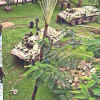
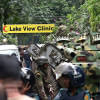
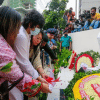
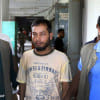

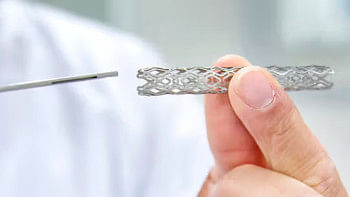
Comments